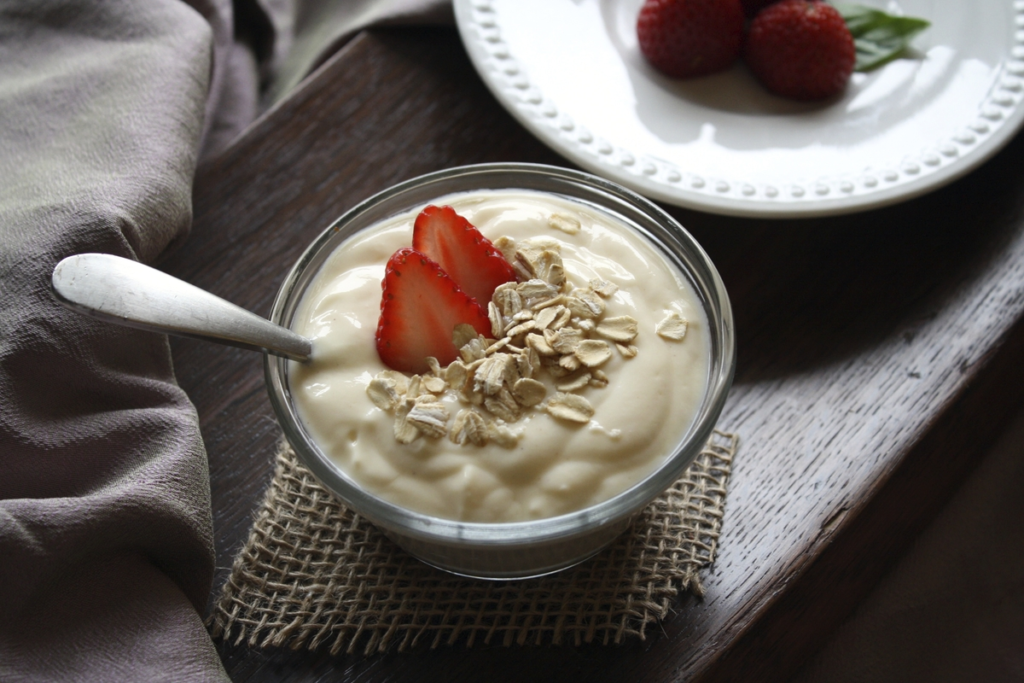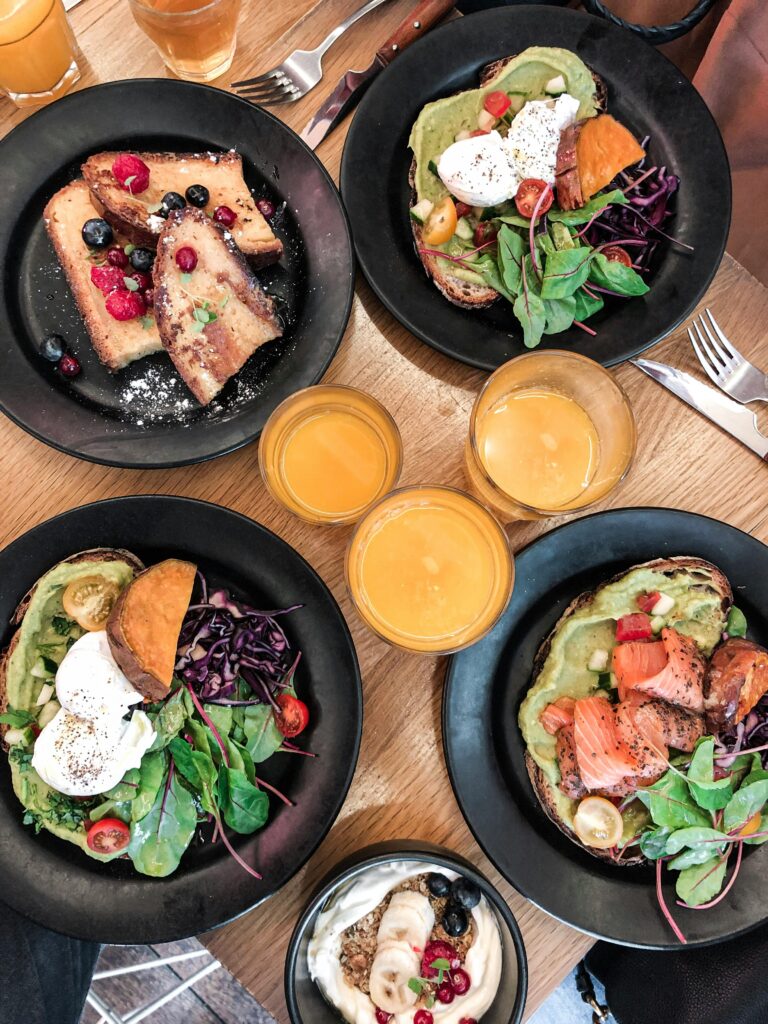In recent years, gut health has emerged as a cornerstone of overall wellness. The human gut is home to trillions of microorganisms that influence digestion, immunity, and even mental health. Probiotic foods, rich in live beneficial bacteria, play a vital role in maintaining a healthy gut microbiome. This article explores the best probiotic foods for gut health, providing insights into their benefits, how to incorporate them into your diet, and why they are essential for your well-being.
What Are Probiotics (Probiotic Foods)?
Probiotics are live microorganisms, primarily bacteria and yeasts, that offer numerous health benefits when consumed in adequate amounts. These beneficial microbes improve gut health by restoring the balance of good and bad bacteria, aiding digestion, and boosting immunity. Probiotics can be found in supplements and various fermented foods.
Top Probiotic Foods for Gut Health
1. Yogurt
Yogurt is one of the most well-known probiotic foods, made by fermenting milk with beneficial bacteria like Lactobacillus and Bifidobacterium. Regular consumption of yogurt can improve digestion, strengthen the immune system, and reduce symptoms of irritable bowel syndrome (IBS).
- Best ways to consume: Add fresh fruits and nuts for a nutrient-packed breakfast or use it as a base for smoothies and salad dressings.
- Choose wisely: Opt for plain, unsweetened, and live-culture yogurts to ensure maximum probiotic benefits.
2. Kefir
Kefir is a fermented dairy product that contains a wide variety of beneficial bacteria and yeasts. With a tangy flavor and creamy texture, kefir is known to enhance digestion, reduce inflammation, and improve lactose tolerance.
- Why it’s great: Kefir often contains more probiotic strains than yogurt.
- How to enjoy: Drink it plain, add it to smoothies, or use it as a base for cold soups.
3. Sauerkraut
Sauerkraut, a traditional fermented cabbage dish, is rich in probiotics and fiber. It supports gut health by introducing live cultures and promoting the growth of good bacteria.
- Nutritional benefits: High in vitamin C and antioxidants.
- Serving suggestions: Use it as a topping for sandwiches, burgers, or salads.
- Tip: Opt for raw, unpasteurized sauerkraut as pasteurization kills live bacteria.
4. Kimchi
Kimchi, a staple in Korean cuisine, is a spicy fermented vegetable dish typically made with cabbage, radishes, and a blend of spices. It’s packed with Lactobacillus bacteria and other probiotics that support gut health and immunity.
- Additional benefits: Contains vitamins A, C, and K, as well as beneficial antioxidants.
- How to eat: Serve it as a side dish, mix it with rice, or use it in soups.
5. Kombucha
Kombucha is a fermented tea rich in probiotics, organic acids, and antioxidants. This fizzy drink supports digestion, detoxification, and energy levels.
- What to look for: Choose raw, unflavored kombucha to avoid added sugars.
- Enjoy responsibly: Limit to one serving per day to avoid excess sugar intake and digestive discomfort.
6. Miso
Miso is a fermented soybean paste commonly used in Japanese cuisine. It’s loaded with probiotics and nutrients like B vitamins, copper, and manganese.
- Health benefits: Enhances digestion, boosts the immune system, and may lower blood pressure.
- Best uses: Add miso to soups, marinades, or salad dressings. Avoid boiling miso to preserve its live cultures.
7. Tempeh
Tempeh is a fermented soybean product with a firm texture and nutty flavor. It’s a rich source of probiotics, protein, and essential nutrients like magnesium and iron.
- Why it’s unique: Contains prebiotics as well, which feed beneficial gut bacteria.
- Serving ideas: Use it as a meat substitute in stir-fries, sandwiches, or salads.
8. Pickles (Fermented Cucumbers)
Fermented pickles are cucumbers preserved in saltwater brine, allowing beneficial bacteria to thrive. They’re an excellent source of probiotics and low in calories.
- How to choose: Look for naturally fermented pickles without vinegar, as vinegar inhibits probiotic growth.
- Ways to eat: Enjoy as a snack or add to sandwiches and wraps.
9. Buttermilk
Traditional buttermilk, also known as cultured buttermilk, is a probiotic-rich dairy product. It’s light, tangy, and aids digestion.
- Best consumed: As a drink or used in baking for probiotic benefits.
- Tip: Avoid processed buttermilk, as it may lack live cultures.
10. Natto
Natto is a traditional Japanese food made from fermented soybeans. It’s rich in probiotics and nattokinase, an enzyme that supports heart health and digestion.
- Why it stands out: Contains a unique probiotic strain, Bacillus subtilis.
- How to enjoy: Serve it with rice or add to soups and salads.
11. Apple Cider Vinegar (ACV)
Raw, unfiltered apple cider vinegar contains probiotics and enzymes that promote gut health. It’s also believed to help control blood sugar levels and improve digestion.
- Usage tips: Dilute 1-2 tablespoons in water and consume before meals. Avoid overconsumption to protect tooth enamel.
12. Probiotic-Rich Cheeses
Certain cheeses, such as Gouda, cheddar, and Swiss, contain live probiotics. These cheeses can support gut health while offering calcium and protein.
- Selection tip: Choose aged, unpasteurized cheeses for maximum probiotic content.
- Serving ideas: Pair with fruits or use as a topping for salads and dishes.
Benefits of Probiotic Foods
- Improved Digestion: Probiotics help break down food, reduce bloating, and alleviate constipation.
- Enhanced Immunity: A healthy gut microbiome strengthens the immune system, reducing susceptibility to infections.
- Mental Health Support: Emerging research links gut health to brain health, suggesting probiotics may reduce anxiety and depression.
- Reduced Inflammation: Probiotics help combat inflammation, which is linked to chronic diseases.
- Better Nutrient Absorption: Probiotics improve the absorption of vitamins and minerals.
How to Incorporate Probiotic Foods into Your Diet
- Start Small: If you’re new to probiotics, introduce them gradually to avoid digestive discomfort.
- Diversify: Incorporate a mix of dairy and non-dairy probiotic foods to benefit from different strains of bacteria.
- Pair with Prebiotics: Prebiotic foods like garlic, onions, and bananas feed probiotics, enhancing their efficacy.
- Stay Consistent: Regular consumption of probiotics is key to maintaining gut health.
- Check Labels: Ensure the product contains live and active cultures for maximum benefit.
Probiotic Supplements vs. Foods
While probiotic supplements are available, consuming probiotics through food is often more beneficial. Foods provide additional nutrients and prebiotics that support gut health. However, supplements may be helpful for individuals with specific health conditions or dietary restrictions.
Conclusion
Probiotic foods are a natural and effective way to improve gut health, boost immunity, and enhance overall well-being. Incorporating foods like yogurt, kefir, kimchi, and sauerkraut into your daily diet can have profound health benefits. Remember to choose high-quality, unprocessed options and pair them with a balanced diet rich in prebiotic foods for optimal results. A healthy gut is the foundation of a healthy life—start nourishing it today with these probiotic-rich foods!



